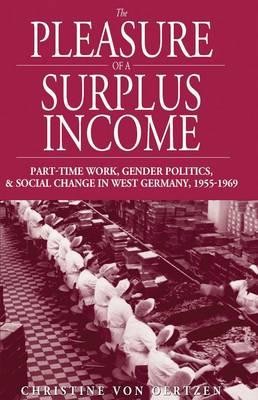
- We will send in 10–14 business days.
- Author: Christine von Oertzen
- Publisher: Berghahn Books
- Year: 2007
- ISBN-10: 1845451791
- ISBN-13: 9781845451790
- Format: 15.2 x 22.9 x 1.6 cm, hardcover
- Language: English
- SAVE -10% with code: EXTRA
Reviews
Description
Published in Association with the German Historical Institute, Washington, D.C.
At a time when part-time jobs are ubiquitous, it is easy to forget that they are a relatively new phenomenon. This book explores the reasons behind the introduction of this specific form of work in West Germany and shows how it took root, in both norm and law, in factories, government authorities, and offices as well as within families and the lives of individual women. The author covers the period from the early 1950s, a time of optimism during the first postwar economic upswing, to 1969, the culmination of the legislative institutionalization of part-time work.
EXTRA 10 % discount with code: EXTRA
The promotion ends in 19d.23:49:31
The discount code is valid when purchasing from 10 €. Discounts do not stack.
- Author: Christine von Oertzen
- Publisher: Berghahn Books
- Year: 2007
- ISBN-10: 1845451791
- ISBN-13: 9781845451790
- Format: 15.2 x 22.9 x 1.6 cm, hardcover
- Language: English English
Published in Association with the German Historical Institute, Washington, D.C.
At a time when part-time jobs are ubiquitous, it is easy to forget that they are a relatively new phenomenon. This book explores the reasons behind the introduction of this specific form of work in West Germany and shows how it took root, in both norm and law, in factories, government authorities, and offices as well as within families and the lives of individual women. The author covers the period from the early 1950s, a time of optimism during the first postwar economic upswing, to 1969, the culmination of the legislative institutionalization of part-time work.


Reviews